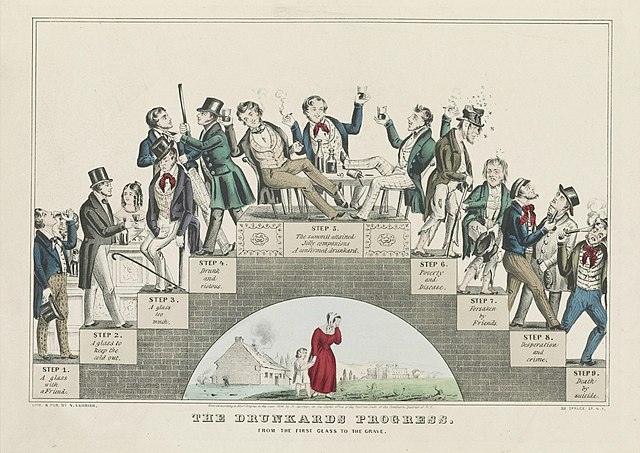Neal Dow was an American Prohibition advocate and politician. Nicknamed the "Napoleon of Temperance" and the "Father of Prohibition", Dow was born to a Quaker family in Portland, Maine. From a young age, he believed alcohol to be the cause of many of society's problems and wanted to ban it through legislation. In 1850, Dow was elected president of the Maine Temperance Union, and the next year he was elected mayor of Portland. Soon after, largely due to Dow's efforts, the state legislature banned the sale and production of alcohol in what became known as the Maine law. Serving twice as mayor of Portland, Dow enforced the law with vigor and called for increasingly harsh penalties for violators. In 1855, his opponents rioted and he ordered the state militia to fire on the crowd. One man was killed and several wounded, and when public reaction to the violence turned against Dow, he chose not to seek reelection.
Neal Dow
Neal Dow House in Portland
Dow and his fellow temperance advocates saw alcohol as the cause of many of society's ills.
Portland's City Hall, site of the rum riot
The temperance movement is a social movement promoting temperance or complete abstinence from consumption of alcoholic beverages. Participants in the movement typically criticize alcohol intoxication or promote teetotalism, and its leaders emphasize alcohol's negative effects on people's health, personalities and family lives. Typically the movement promotes alcohol education and it also demands the passage of new laws against the sale of alcohol, either regulations on the availability of alcohol, or the complete prohibition of it.
The Drunkard's Progress (1846) by Nathaniel Currier warns that moderate drinking leads to total disaster step-by-step.
Songbook used at the Women's Temperance Organization from Wilkinsburg, Pennsylvania.
Sons of Temperance procession, Hill End, New South Wales, 1872
A temperance fountain in Tompkins Square Park, New York City







